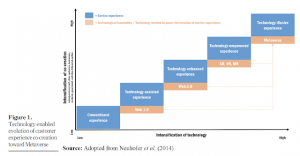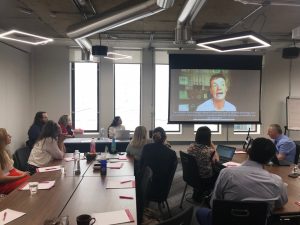Hi all – we are bit late against our Wednesday deadline this week, we’re sure you’ll understand. Still lots going on and some of it doesn’t even relate to the crisis – KEF concordat high on your priority list, anyone?
Students in the lockdown
Minister under the spotlight: Universities Minister Michelle Donelan has responded to several parliamentary questions this week, and come under fire for some, perhaps unintentionally misleading, answers during interviews. Most widely reported in the media was her statement responding to a question on supporting student rent costs that students had not been told to return to the family home (as a C-19 distancing safety measure) – “I can assure you that we never instructed students to return to their permanent addresses.” Also causing raised eyebrows were the implications within some of the Minister’s responses putting the onus on universities for certain decisions and support measures – such as blanket hardship support and IT funding (see the parliamentary questions below).
Q – Richard Holden: To ask the Secretary of State for Education, what steps he is taking to ensure that university students in their final year receive the support they need during the covid-19 outbreak.
A – Michelle Donelan:
- The government is doing all it can to keep staff and students at our universities safe in this unprecedented situation, while mitigating the impact on education. I have written to students to outline the support available and we continue to work closely with the sector, putting student wellbeing at the heart of these discussions…
- My clear expectation is that universities should make all reasonable efforts to enable students to continue and complete their studies; for their achievements to be reliably assessed; and for qualifications to be awarded securely…The Office for Students has also recently confirmed that providers are able to use the student premium to support students to access IT equipment and internet connectivity where needed. Students will continue to receive scheduled payments of loans towards their living costs for 2019/20. Both tuition and living costs payments will continue irrespective of closures or whether learning has moved online. Many students will be feeling uncertain and anxious and it is vital that students can still access the mental health support that they need. Many providers are bolstering their existing mental health services and adapting the delivery of these services to means other than face-to-face. These services are likely to be an important source of support to students during this period of isolation.
And:
Q – Peter Kyle: To ask the Secretary of State for Education, what steps he is taking to support online learning for disadvantaged university students.
A – Michelle Donelan:
- As my right hon. Friends the Prime Minister and Chancellor of the Exchequer have both made clear, the government will do whatever it takes to support people affected by COVID-19. Despite the significant disruption being felt across the higher education (HE) sector, students rightly deserve the appropriate support and recognition for their hard work and dedication. HE providers take their responsibilities seriously and are best placed to identify the needs of their student body as well as how to develop the services needed to support it. Many HE providers have moved rapidly to develop new ways of delivering courses through online teaching and alternatives to traditional end-of-course exams. When making changes to the delivery of their courses, HE providers need to consider how they support all students, particularly the most vulnerable. This includes students suffering from COVID-19, students who need to self-isolate, international students and students who are either unable or less able to access remote learning for whatever reason, as well as care leavers, students who are estranged from their families and students with disabilities. The Office for Students (OfS) has recently published guidance setting out the actions that it will take to support providers to maintain standards and teaching quality. It highlights flexible models for teaching, learning and assessment that will most likely satisfy OfS quality and standard conditions. On 23 March, the Quality Assurance Agency for Higher Education published the first in a series of good practice guidance notes that are available to all UK HE providers.
- HE providers should make all reasonable efforts to enable students to complete their studies, for achievement to be reliably assessed and for qualifications to be awarded securely. Many HE providers will have hardship funds to support students in times of need, including emergencies. The expectation is that where any student requires additional support, such as access to the Internet, providers will support them through their own hardship funds. The OfS have stated that providers are permitted to divert more of their student premium funding to their hardship funds to support students, including through the purchase of IT equipment. Providers should particularly ensure that students in the most vulnerable groups are able to access this support where needed.
On Friday Wonkhe reported that Paul Blomfield, Chair of the All Party Parliamentary Group for Students, blasted Universities Minister Michelle Donelan for “failing to acknowledge” concerns raised by 110 MPs from across Parliament – arguing in a fresh letter that the issues “have only become more pressing” over the last three weeks. Reflecting concerns about some institutions’ refusal to adopt “no detriment” policies, Blomfield argues that plans on exams “vary widely” and, for that reason, “create a sense of unfairness” among students.
Student connectivity : HE organisations have called on the Government to provide parity of online access for HE learners during the current crisis. Chief Executives from JISC, the Association of Colleges, Universities UK and UCISA ask the Minister to work with telecoms providers and Ofcom to make all relevant online education sites free for access for UK further education and higher education students and that they be considered a priority group of vulnerable consumers in discussions with telecoms providers. The letter states:
- ‘With campuses closed, thousands of students are now learning online at home, where both broadband and access to mobile devices is prohibited by availability, connectivity and cost. The further education (FE) and higher education (HE) sectors have worked very hard to successfully ensure the continual provision of teaching and learning online but, put simply, this is unaffordable and inaccessible for many learners. Not only does this prohibit their education, but it is damaging for their overall wellbeing.’
MPs calling for support for students who usually work throughout their degree and are ineligible for universal credit continues – see this Guardian article. There is another Guardian feature giving the student perspective on hardship (including university hardship funding).
Accommodation: Last Wednesday the Office for Students published a briefing note for universities on how to help students with accommodation problems during the coronavirus pandemic, including worries over rent, access to kitchens and bathrooms shared with self-isolators, and signposting to sources of information. Research Professional cover the guidance here.
Student Loans: The Student Loan Company updated their FAQs with COVID19 content.
More parliamentary questions:
Q – Barry Sheerman: To ask the Secretary of State for Education, what representations he has received from disabled students on access to assistive technology via the disabled students’ allowance due to the economic effect of the covid-19 outbreak; and if will make a statement. [37453]
A – Michelle Donelan:
- Disabled Students’ Allowances (DSAs) provide for the additional costs that disabled students may face in higher education because of their disability. A basic computer is a mainstream cost of study and students are therefore expected to make a £200 contribution towards the cost of any computer recommended as part of their needs assessment. The contribution is for computer hardware only; students are not expected to fund recommended specialist software or training in how to use it.
- There are currently no plans to suspend the requirement for disabled students to contribute £200 towards the purchase of a computer. The department has not received any representations from disabled students on access to assistive technology through DSA support in relation to the economic effect of the Covid-19 outbreak. It is too early to assess the effect of the Covid-19 outbreak on the employment opportunities for disabled students. These are rapidly developing circumstances; we continue to keep the situation under review and will keep Parliament updated accordingly.
Q – Tommy Sheppard: To ask the Secretary of State for Work and Pensions, when she plans to respond to Question 30815 of 17 March 2020 from the hon. Member for Edinburgh East. [38568]
A – Will Quince:
- Students who do not ordinarily have entitlement to Universal Credit (UC) and who receive a maintenance loan or grant through the student finance system, will continue to be able to draw upon this financial support until the end of this academic year.
- Those who do not receive student finance and who would ordinarily not have entitlement to UC, such as those undertaking a part-time course which would otherwise not be considered as compatible with the requirements for them to look for and be available for work, will have entitlement to UC. We have disapplied UC and both legacy and new style JSA work preparation, work search and availability requirements and related sanctions. This will initially be for a three-month period. After three months, consideration will be given as to whether a further extension is required.
Q – Emma Hardy: To ask the Secretary of State for Education, what recent discussions he has had with the Secretary of State for Work and Pensions on enabling students that are unable to (a) work and (b) be furloughed to claim universal credit during the covid-19 pandemic. (37820)
A – Michelle Donelan:
- Students with a part time employment contract should speak to their employer about the Coronavirus Job Retention Scheme which has been set up to help pay staff wages and keep people in employment. HMRC are working urgently to get the scheme up and running and we expect the first grants to be paid within weeks.
- Students suffering hardship should in the first instance contact their provider. Many universities have hardship funds to support students most in need and contact details are available on university websites. Undergraduate students studying on full-time courses will continue to receive their maintenance loan payments as planned for the remainder of this academic year, 2019/20. Eligible students who need to undertake additional weeks of study on their course in the current academic year may qualify for additional long courses loan to help with their living costs.
- Certain groups of students eligible for benefits such as lone parents will continue to qualify for Universal Credit in addition to their maintenance loans.
Universities and the crisis
Student number controls: you will recall that this is part of the UUK package of measures – a cap on forecast numbers plus 5% (which doesn’t sound like much of a cap anyway given that the OfS keep saying that the forecasts are unreasonably high and suggest a problem with financial sustainability because they won’t be achieved…) –Wonkhe have a blog by Mark Corver suggesting they would cause more problems than they would solve. Some extracts below:
- The case for quotas is that by restricting student choice they can divvy up fee income across universities in a way that can offer financial stability. But quotas make a fundamental mistake in placing little value on what students want, assuming that their personal aspirations can be redirected around the system as required. This could well lead to many students opting not to go to university, making quotas of very limited use in helping stability this cycle.
- The best response to uncertainty is flexibility. Imposing quotas strips both students and universities of the ability to respond to events.
- A more reliable approach to securing stability is the same as what government is considering across the economy. If a large, but likely temporary, change risks destroying productive capacity then the government considers support until the temporary conditions abate.
- For some transport operating companies they have done this through partially compensating for the loss of passengers their finances reasonably assumed. They have not proposed offering potential passengers a take-it-or-leave-it offer to buy tickets for journeys they don’t want make to places they do not want to go. Because it would not work.
Remember that UUK bailout package? UUK and Millionplus came out with an additional specific one for the key worker sectors this week. Working with universities, the government could take a major stride towards mitigating against future capacity shortfalls with a simple three-pronged approach:
- Supporting students and graduates to become key workers in public services, by offering a maintenance grant of up to £10,000 for all students in training, removing any recruitment caps, and providing fee-loan forgiveness for those remaining in the relevant professions for at least five years.
- Strengthening and enhancing key public service HE capacity in universities by increasing the funding to the Office for Students to reflect the added costs while creating a new Public Services in Higher Education Capital Fund to enable universities to invest in simulation equipment, additional staff costs and other infrastructure.
- Retaining and developing key workers in public services, by increasing general staffing budgets and creating a new professional development programme focused on enhancing skills of current key workers in public services and the new NHS volunteer reserve.
Flexible Learning: Advance HE published guidance on flexible learning accompanied by a blog stressing the importance of flexibility: Flexible learning comes of age.
Ex-Ministers speak: Research Professional cover an excellent session in which three past university ministers (Willets, Johnson, Skidmore) discuss the dangers of allowing a Government imposed temporary student numbers cap and instead urge the sector to agree its own self restraint version. International students are also mentioned. The Express also cover Willetts’ comments.
Discussion and speculation over Government’s thinking on university bail out/support measures continued this week.
HEPI have published the blog: Don’t panic…yet? Explaining their perspective as to why Ministers wouldn’t immediately jump to support the HE sector. It contains a couple of fresh perspectives alongside reiterating reasons already stated. In essence the statement: “Frustrating though it is, it is not unreasonable for officials to want to see this play out a little before making firm decisions that could cost billions of pounds” sums the blog up.
The Guardian ran Ministers split over bailout package for universities.
The Times have a piece explaining that Universities that would benefit well from a rescue package based on research funding are also some of the richest universities. The article reiterates familiar messages including Ministers wanting to wait to find out what the real situation is in September rather than jumping the gun unnecessarily. Excerpt:
- Smaller, newer institutions are getting the scraps from the table. Yet they can reasonably argue that they will be the ones to spearhead an economic recovery, being in many cases the biggest employers in their areas. They are now doing their own lobbying.
- “Frustrating though it is, it is not unreasonable for Whitehall officials to want to see this play out a little before making firm decisions that could cost billions of pounds,” Nick Hillman, director of the Higher Education Policy Institute and a former government adviser, said.
- The danger is the Treasury, where officials are not short of self-belief, think they know more about the sector than everyone else and can direct any bailouts to, for example, universities already in financial trouble to make sure they do not go under, rather than seeing the bigger picture of protecting Britain’s research prowess and global reputation.
New Normal
Wonkhe have a lot to say on the ‘new normal’:
- We’re being asked to consider what living with Covid-19 in the medium to long term might mean.
- Most universities now think they have this term under control, but it’s September that poses the biggest headache. Universities have done their best to shift the rest of this year’s teaching and assessment online – but it’s starting to become clear that this hasn’t worked for some students and some courses. A big debate about adequacy is coming, as is one about which emergency adaptations, both to teaching and to assessment, will be scrapped or retained (and when). Some of the compromises made mid-crisis may be harder to justify – and charge full fees for – in the autumn.
- Learning and teaching teams are working around the clock to plan for a full or mostly online student experience from September. This will require much more careful thinking about remote student engagement, and in many cases a full redesign of existing courses…But delivering change on this scale at pace is bound to tax universities to the very limits.
- If the institutional approach to dealing with this tension is truly in the student interest, then students will at the very least need to be involved in the debate. At the moment, they, like the rest of us, would love to return to a normal that isn’t on offer.
And Wonkhe offer a plethora of new blogs on the topic of what change is to come:
Parliamentary Business/Updates
Select Committee Chair elections – 6 May: The process for election to the coveted BEIS chair has been confirmed. Nominations will open (by email) on 17 April and close on May 4 and must be accompanied by 15 letters of support. Select committee membership is representative of the proportion of MPs elected at the beginning of the Parliament and a balance of Conservative, Labour and members of other parties are agreed in advance of the Committees reforming. This includes which party will chair which select committee. BEIS is chaired by Labour so only Labour MPs will be nominated to stand. The (outsourced) online ballot will elect the chair on 6 May. Chair of the Standards Committee (to replace Kate Green who was appointed Shadow Minister for Child Poverty Strategy) will also take place on 6 May 2020 again only members of the Labour Party may be candidates.
Employability after the crisis
HEPI continue to talk about new graduate career anxiety although the latest offering suggests students feel confident they will find work in Open for business? Students’ views on entering the labour market. This publication was based on a survey of 1,000 full time undergraduate students. HEPI highlight:
- 79% of graduates feel confident of getting a graduate level job once they graduate
- However, when asked about their feelings towards entering the labour market:
- 28% cite anxiety, ahead of confidence (23%), uncertainty (16%) and feeling overwhelmed (16%)
- 14% selected excitement as their primary emotion, 3% felt relaxed
- 29% say the Coronavirus pandemic has altered their feelings (71% no feeling change)
- Almost two-thirds (64%) have a specific career in mind for when they graduate, compared to 18% who do not and 17% who are unsure.
- 72% intend to go into a career directly related to their degree subject
- Work experience is seen as important (61%)
- Students think there are four main factors that make for a successful career: doing something they are interested in (49%), being happy and fulfilled (48%), having stability (47%) and having a high salary (41%).
- 35% of graduates to be intend to spend up to 2 years in their first role; 24% plan on staying for over three years (19% pumped for 2-3 years; 18% intend to stay less than a year and 3% intend to spend less than six months!
Rachel Hewitt, HEPI’s Director of Policy and Advocacy, said:
- ‘These results show students feel confident about finding work, but anxious about starting their career. This anxiety has been there since before the current pandemic for many students, but for almost a third the current circumstances have exacerbated these feelings. Universities need to provide as much support as they can for students who are entering the labour market in such uncertain times and employers need to be mindful of these results in their hiring processes.
- The polling also shows a number of misconceptions that students have about the labour market. Most expect to go into a career directly related to their degree subject, while employers tend to see subject of study as less important than the skills they have gained. Students expect to only spend a short time in their first graduate job, when research shows that many stay in their first role for longer than expected. University careers guidance should seek to tackle these misconceptions, so students are better informed about their future careers.’
In the Foreword to the report, Jonathan Black, Director of Oxford University Careers Service, writes:
- Students graduating this year could, perhaps, be forgiven for thinking they have lived against a backdrop of uncertain and threatening events: the 9/11 terrorist attacks and subsequent wars, the 2008 financial crisis, the turmoil and division of Brexit, and throughout the period, an increasingly obvious climate crisis. Now, along comes a global pandemic that is beginning to make the previous environment look almost benign and limited.
- This HEPI report confirms that students’ familiarity with uncertainty is measurable by the fact that the majority of respondents say their perceptions haven’t changed solely because of the Covid-19 pandemic. They remain generally positive about their future – perhaps the optimism of youth who either don’t know or don’t believe the predictions or maybe they see opportunities in the changes to come.
- ‘This report forms a useful benchmark of how much the pandemic is changing students’ views of their career. The extent, scale, and life of this pandemic and its accompanying economic shock are only just emerging, and there could be a very long way to go before we return to a “new normal”’
Nicola Dandridge, Chief Executive, Office for Students responded to the HEPI paper:
- Coronavirus will clearly have a profound impact on the economy, so it is unsurprising that students are anxious as they enter the next stage of their lives after graduation. However, the skills and experiences of graduates will be crucial to the economy as we rebuild, and there will be many opportunities for well qualified graduates to embark on rewarding careers.
- The careers services that universities and colleges provide have a crucial role to play in helping to equip students with the confidence and skills they need to find professional employment. Their expertise will be particularly important during these difficult and uncertain times.’
Research
REF: The REF team have published a set of FAQs covering adjustments to the REF (timetable still under discussion) following last week’s webinar discussing the changes needed to adapt for C-19.
Academic Travel: HEPI have a blog considering how conducting PhD vivas online would be a forward step in reducing emissions and make a positive impact on carbon reduction supporting both universities environmental policies and national goals – Conducting PhD vivas online is working fine: there will be no need to return to excessive flying habits. It was inspired by the change in practices forced by lockdown.
Similarly HEPI have another blog on universities achieving carbon neutral status and what this means for academic travel.
Research Professional published Alarm as Covid-19 recovery plan neglects to mention R&D discussing how research and education has been left out of EU roadmap just two days before discussions were due.
Knowledge Exchange Concordat
The Knowledge Exchange Concordat was published on Friday. Research Professional covered the publication announcement here. It was a slight surprise to the sector as originally it was anticipated to be delayed and launched alongside a process allowing providers to explicitly sign up to the Concordat high level implementation plan (which won’t happen until later in 2020). And as Ivory Tower (tongue-in-cheek Friday comedy HE column) so eloquently imagine, lockdown seems a strange time to be launching an outward focussed process – excerpt from Ivory Tower imagined diary of Trevor McMillan, vice-chancellor Keele University:
- This is definitely the right moment to release the knowledge exchange concordat. I’ve been working on this for a decade.
- Now is the time to find out how staff in universities are getting out into their communities and interacting with people. Oh, hold on… can I start this again?
(Trevor McMillan is the Chair of the Concordat Committee on real life.)
Wonkhe have a short blog from Trevor McMillian himself The Knowledge Exchange Concordat: published but not yet activated explaining a little on the concordat and timing:
- Universities all have different strengths and we are committed to applying them to maximise their impact. When we are through the acute stages of the Covid-19 pandemic there will be the need for an enormous recovery programme to turn around the social and economic deficits that will be left by the current crisis. Universities will have a critical role in this, by engaging staff from right across our disciplinary base.
- Hopefully, the Knowledge Exchange Concordat will provide a framework in which we can, as universities, ensure that we have the approaches in place to facilitate our staff and students to continue to have a major impact.
Dods explain the basics on knowledge exchange for those less familiar with the purpose of the concordat:
- Knowledge exchange includes a set of activities, processes and skills that enable close collaboration between universities and partner organisations to deliver commercial, environmental, cultural and place-based benefits, opportunities for students and increased prosperity. This KE concordat therefore seeks to provide a mechanism by which universities can consider their performance in KE and make a commitment to improvement in those areas that are consistent with their priorities and expertise.
- UK universities received £4.9 billion from knowledge exchange activities in 2018-19, helping fund activities to boost scientific, technological, medical and cultural breakthroughs. More effective knowledge sharing between universities and businesses will be essential in underpinning the Government’s target spend of 2.4% of GDP on research and development by 2027.
David Sweeney, Executive Chair of Research England, said: I am pleased to see the publication of the KE concordat and very much welcome that its development has been sector-led. The concordat provides the means to continuously improve institutional KE performance and I see it as critical in assurance of our funding, especially driving efficiency and effectiveness.”
Joe Marshall, CEO of the National Centre for Universities and Business, said: “Universities’ knowledge exchange activities play an incredibly important role in attracting, supporting and enhancing businesses and other organisations. The Concordat is an important vehicle for universities to proactively show their commitment to collaboration with others and demonstrate to external partners that through self-improvement they want to build better and deeper partnerships.”
And our view: it doesn’t look to have changed much from the version that was consulted on. It still includes aim 3 “to provide clear indicators of their approaches to performance improvement”. They have added more language to the guiding principles. “Working effectively” has become “working transparently and ethically” but the language underneath it is the same. It still includes “continuous improvement” and “evaluating success” as principles. The list of examples is hedged about with more “could” language but we still under the final commitment have to commit to producing an action plan for improvement and consider and respond to feedback from their panel. It still feels more like a regulatory framework than anything else.
Social Mobility and Widening Participation
Care Leavers and Estranged Students: The Care Leavers Progression Project shared several links aiming to support the vulnerable community of care leavers who are disproportionately affected by the crisis:
Disadvantaged school pupils: Education Select Committee Chair, Robert Halfon, is reported in iNews as suggesting retired teachers, graduates and underemployed Ofsted inspectors could support the reduction of the gap in the attainment of disadvantaged children by volunteering to tutor them post-lockdown. Halfon suggests they could be assigned to their local school. TES also covers Halfon’s volunteer army plan, excerpt:
- “I’m really worried that the left behind pupils get left further behind because they aren’t able to learn during lockdown. So I’ve been proposing a catch-up premium and also a nationwide army of volunteers – including graduates and retired teachers – going in and helping the schools…The research shows if you have half an hour of mentoring three times a week you can advance by about five months.”
The Nuffield Foundation and Bristol University have also published a report highlighting how children in England who have been supported by a social worker at any point during their schooling fall behind educationally by at least 30% by the age of 16. Other findings include:
- Young children, who needed a social worker before the age of seven, achieved better GCSEs if they had experienced a long-term stay in care than those who had not.
- Children in need and children in care were more affected by other forms of disadvantage, such as poverty, socio-economic status, special educational needs, and disabilities, which led to lower educational attainment
- Absence, temporary or permanent exclusions, and changing schools at the age of 15 or 16 were other factors shown to worsen academic performance.
- A quarter of all children who had ever needed a social worker were still receiving a social work service in the final year of their GCSE exams.
Many parents of children in need interviewed as part of the study said they were living in poverty and struggled to pay for their child’s school needs, such as uniform, computers and internet access. Older children interviewed indicated they liked primary school but regarded secondary schools less favourably, due to their size, complexity and difficulties with teachers.
Recommendations:
- Make support available for children in care applicable to children in need, such as Pupil Premium Plus payments provided to schools and Virtual Schools which oversee their education.
- Teacher training for pupils’ well-being.
- Measures to address the affordability of schooling are cited as other necessary changes.
The report has led to a national call to action, appealing for more comprehensive and coordinated support.
Anne Longfield, Children’s Commissioner for England, said: “Too many children in this country are growing up in disadvantage, struggling at home and at school. The educational prospects for many thousands of children in need are, frankly, terrible. Many leave the education system without even the basic qualifications. The government has promised to ‘level up’ across the country, and this must include properly-resourced, cross-departmental strategies for tackling the issues that blight the life chances of the most vulnerable children. The response to the coronavirus shows that coordinated action and political will on funding can have a transformative impact. The ‘new normal’, post-coronavirus, is an opportunity for similar brave action which gives help and support to vulnerable children from their early years and throughout their childhood and tackles the generational problems that have held back so many.”
Brexit
Dods report that the EU’s Chief Brexit Negotiator, Michel Barnier has stated that there has been a “disappointing” amount of progress made between the UK and EU in post Brexit talks. Speaking after talks with his UK counterpart David Frost, Bernier said that the “clock was ticking” and warned that “genuine progress” was needed by June if there was to be an agreement reached on the UK/EU future relationship by the end of the year. Despite talks stalling, and having to be reduced due to Coronavirus, the UK Government is still insisting that it will not request or accept an extension to the transition period beyond 31st December 2020. Under the Withdrawal Agreement, the transition period can be extended by up to two years if both sides agree by 1 July 2020. Barmier told the press conference a joint decision would be taken on 30 June about whether to extend the transition period. “The UK cannot refuse to extend transition and at the same time slow down discussions on important areas,” he said. The UK and EU are failing to make progress primarily on the areas of level playing field arrangements, fisheries and justice. The next round of talks are due to be held the w/c 11 May and 1 June.
Inquiries and Consultations
Click here to view the updated inquiries and consultation tracker. Email us on policy@bournemouth.ac.uk if you’d like to contribute to any of the current consultations.
Other news
People News: Stian Westlake has been appointed as Chief Executive of the Royal Statistical Society (RSS). Stian was previously policy advisor to Universities Ministers – David Willetts, Jo Johnson and Sam Gyimah. RSS describe Stian’s previous roles:
- As an executive director at Nesta from 2009 to 2017, Stian ran the organisation’s think tank. Under his leadership, the team launched a range of initiatives on data and evidence, including the Alliance for Useful Evidence, the Innovation Growth Lab and the Innovation Index (in partnership with ONS), as well as significantly increasing its external income. After this, Stian served as policy advisor to three successive ministers for universities and science. He is co-author of Capitalism Without Capital, a book about intangible investment and the economy. He is also a governor of the National Institute for Economic and Social Research and advisory board member of the Institute for Community Studies.
- At the RSS, Stian will lead on a programme of activities that take forward its strategic goals, including the Society’s Covid-19 Task Force, Data Manifesto and National Lottery-funded initiative, Statisticians for Society.
Skills Toolkit: The DfE have launched a Skills Toolkit for the public. SoS for Education Gavin Williamson describes it in his written ministerial statement: a new online platform giving people access to free, top-quality digital and numeracy courses to help build up their skills, progress in work and boost their job prospects.
NHS Visas: The Home Affairs Committee has written to Home Secretary Priti Patel seeking further clarification on issues relating to NHS visa extensions.
Subscribe!
To subscribe to the weekly policy update BU staff can simply email policy@bournemouth.ac.uk.
JANE FORSTER | SARAH CARTER
Policy Advisor Policy & Public Affairs Officer
Follow: @PolicyBU on Twitter | policy@bournemouth.ac.uk




















 Dr. Ashraf cited on ‘Modest Fashion’ in The Guardian
Dr. Ashraf cited on ‘Modest Fashion’ in The Guardian NIHR-funded research launches website
NIHR-funded research launches website Academics write for newspaper in Nepal
Academics write for newspaper in Nepal New paper published on disability in women & girls
New paper published on disability in women & girls MSCA Postdoctoral Fellowships 2025 Call
MSCA Postdoctoral Fellowships 2025 Call ERC Advanced Grant 2025 Webinar
ERC Advanced Grant 2025 Webinar Horizon Europe Work Programme 2025 Published
Horizon Europe Work Programme 2025 Published Horizon Europe 2025 Work Programme pre-Published
Horizon Europe 2025 Work Programme pre-Published Update on UKRO services
Update on UKRO services European research project exploring use of ‘virtual twins’ to better manage metabolic associated fatty liver disease
European research project exploring use of ‘virtual twins’ to better manage metabolic associated fatty liver disease